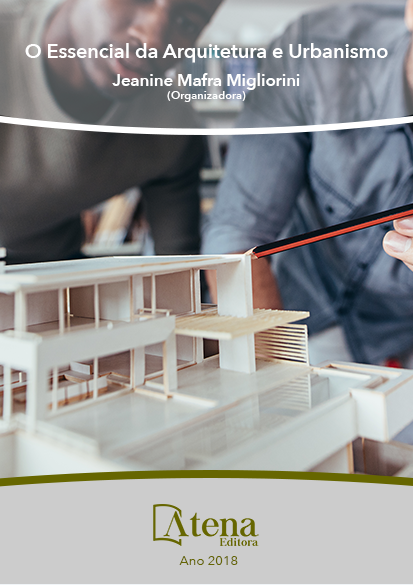
EXPERIÊNCIA EM ASSISTÊNCIA TÉCNICA PARA HABITATS DE REFORMA AGRÁRIA: UNIVERSIDADE, ESTADO E MOVIMENTO SOCIAL
Este artigo apresenta as
contribuições teórico-metodológicas do método
“Desenho do Possível”, a partir do seu processo
de formulação, através da experiência de
assistência técnica da Universidade (UFRN) ao
Movimento Social (MST) e ao Estado (INCRA).
A parceria entre os três agentes acontece desde
1994, dirigida aos habitats dos assentamentos
de reforma agrária. O caminho dessa análise
incide sobre seu referencial teórico, baseado
em Henri Lefebvre e Paulo Freire, que
fundamentam seu enfoque participativo e
educativo, buscando transformação e troca de
conhecimentos. Aborda-se a trajetória desta
metodologia, através dos seus principais
momentos, desenvolvidos a partir do ensino,
pesquisa e extensão e do envolvimento da teoria
com a práxis dos participantes, avaliando-se as
consequências para além da assessoria técnica
e social. Para o MST, a atuação nesses processos
clareia sua compreensão do espaço construído
e a importância para a sua organicidade. Para
a Universidade, constitui a oportunidade para
aprimorar o enfrentamento dos conflitos entre
o saber técnico e o popular; entre o desejo de
mudança e os vícios adquiridos no vivido; e
possibilidades de contribuir com a autogestão
para a qualificação do habitat no campo.
Para o Estado, demonstra a possibilidade de
efetivar os habitats do campo através de um
processo participativo e multidisciplinar, além
de apontar para a necessidade de uma política
equânime para habitação de interesse social na
cidade e no campo. Esta metodologia, com a
universalização da Lei de Assistência Técnica,
poderá contribuir com o incentivo à produção de
habitats rurais e urbanos, através dos mutirões
assistidos e autogeridos.
EXPERIÊNCIA EM ASSISTÊNCIA TÉCNICA PARA HABITATS DE REFORMA AGRÁRIA: UNIVERSIDADE, ESTADO E MOVIMENTO SOCIAL
-
DOI: Atena
-
Palavras-chave: Habitat de Interesse Social. Assistência Técnica da Universidade. Assentamentos de Reforma Agrária.
-
Keywords: Social Interest Habitat. University’s Technical Assistance. Land Reform Agricultural Units.
-
Abstract:
The project has the purpose of
explaining the theoretical and methodological
contributions of the “Desenho do Possível”
(design of possible) method, starting from the
presentation of its formulation process, by the
experience of university’s technical assistance
to Social Movement (MST - Landless worker’s
movement) and to State (INCRA). The
partnership between those three agents happens since 1994 and is directed to social interests scope of the countryside inhabitants,
especially the land reform agricultural units. The path to this analysis focuses in its
theorical referencial, based in Henri Lefebvre and Paulo Freire ideas, that substantiate
their participative, educative and changeable focus. The construction trajetory of this
methodology is approached through its main moments, developed from the teaching,
extension and research activities and the involvement of the theory with the participants
praxis. Within more than 20 years of acting the consequences for people involved with
the partnership are perceived for beyond a qualified technical and social assessory.
For MST (Landless worker’s movement), the acting in these processes clarifies its
constructed space comprehension and its importance for the organicity. For the
University the opportunity to improve the coping conflicts between the technical and the
popular knowledge; between the desire of change and the addictions aquired in living;
and in the possibilities of contributing with self-management for the improvement of the
countryside social interest scope is built. For the State, the possibility of accomplishing
conception, planning and execution of countryside habitats through a participative and
multidisciplinary process and also the indication of the need of a equitable politics for
social interest housing in city and in countryside, is demonstrated. This methodology,
with the universalization of the Technical Assistance Law, will be able to contribute with
urban and rural habitats creation, through assisted and self-managed free aid.
-
Número de páginas: 15
- Maria Cândida Teixeira de Cerqueira


